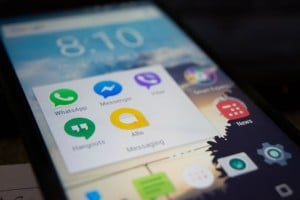Proper information broadcasting is critical to fighting the spread of the novel coronavirus in any country, and South Korea managed to fight the disease by achieving it. South Korea used emergency text messages to inform the public regarding the movements of those individuals who tested positive for the coronavirus as well as instructions and reminders to tell how others can avoid infection.
Dr. Fred Muench, president of the US-based Center on Addiction, agreed that sending digital messages for public health reasons is effective. Dr. Muench stated that mass SMS dissemination or mass messaging due to their “reach, immediacy, an opportunity for data collection and personalization, ability to tailor and adapt information, and opportunity to link to other sources.”
Various governments are now using mass messaging to disseminate COVID-19 information to the public adequately. Without any systematic means to inform the public regarding the virus, the people can get confused, like how Australians urged the government to launch a mass communication campaign to stop rambling politicians.
South Korean Response
South Korea sent messages en masse using cell broadcasting. The government blasted SMS concerning instructions and reminders on social distancing, hand washing, coughing etiquette, and caring for seniors.
Local districts sent detailed messages to those in their area to inform them of the movements of a coronavirus positive individual.
South Korea’s initial success in “flattening the curve” is attributed to the government’s early testing efforts, contact tracing, and surveillance activities, and one can say that the information drive is keeping the virus in check. The government’s emergency alert system used cell broadcasting to send messages three to five times a day.
The UK and the EU
The UK and several countries in the EU lagged in responding to the novel coronavirus through mass messaging. The UK once tried out an emergency alert system in 2014 but didn’t implement it. The EU also passed a directive in 2018, stating that its member countries must have a mobile alert system in place by 2022.
Many service experts agreed that it’s vital to have a mass messaging system to keep the public informed on updates regarding the virus. The lack of such systems can lead to the proliferation of false and unverified information from different sources with no means to verify them and cause panic as a result.
Both the UK and the EU’s member countries should set up a system to keep their citizens informed on how to fight and control the virus.
How Governments Send Messages En Masse
There are three ways for governments to conduct mass messaging, and none of them require any direct access to any individual’s private number.
Through Telecommunication Companies
Governments can seek the assistance of telecommunication companies to send out messages on their behalf. No government institution will get the recipient’s contact information while still being able to inform the public regarding the coronavirus.
Through the Network Operators’ Cellular Towers
Both South Korea and the United States used their countries’ cell broadcast services to blast messages to their citizens. Officials won’t need any specific information regarding the recipients’ contact information, including their SIM cards and phone numbers.
This method of sending information can reach around 80% of the population, even those who don’t have their mobile data switched on. The only problem with this method is that those with older phones and have the broadcast feature disabled tend not to receive any message blasts.
Through Location-Based Messaging
Governments can also send mobile SMS en masse only by choosing a particular location to send a specific message. The alert can be tailored to address any issues in a particular area to make the SMS more interactive.
Officials can use location-based messaging to interact with the citizens by asking if any of them require assistance. The government can also ensure that their constituents will only get the information they need and not that which applies to other areas.
The messages can be sent to specific people who are in a park or even a single apartment block. Australia used this method to keep the people informed and had a successful delivery rate of 97%.
Dr. Fred Muench also agreed that personalized and tailored text messages had far more significant effect than alternative methods.
Investing in a reliable mass messaging solution can help both the national government and other government units to communicate with the citizens and send messages instantly. Agencies can ensure that their tailored messages will reach their targets and be deemed relevant by the recipient.
The citizenry will be able to appreciate the government’s efforts and aid in flattening the curve and fight the novel coronavirus.
The TeleMessage Mass Messaging can allow government agencies to send mobile SMS, MMS, Push Notifications, Voice & Fax from the Web, Email to SMS, or via our Messaging APIs. Government units can tailor their messages to address the situation in a specific area and make the conversation interactive with the citizenry. Whatever your requirements, use our Mass Messaging to develop relationships and generate engagement.
Contact us to learn more about our Mass Messaging product today.
Sources:
https://edition.cnn.com/2020/03/27/tech/text-alert-coronavirus/index.html https://www.telemessage.com/how-can-mass-messaging-help-your-business/




